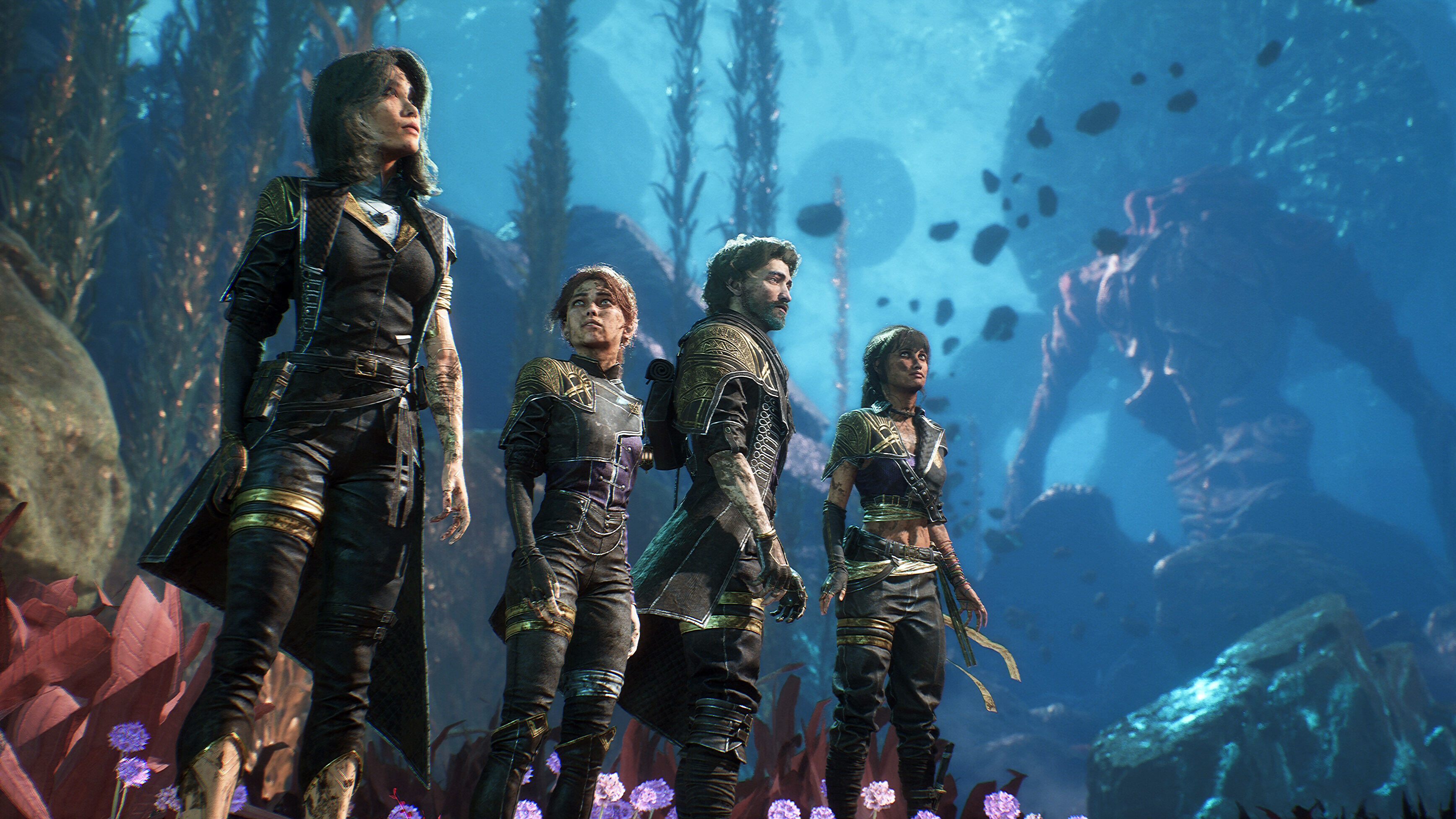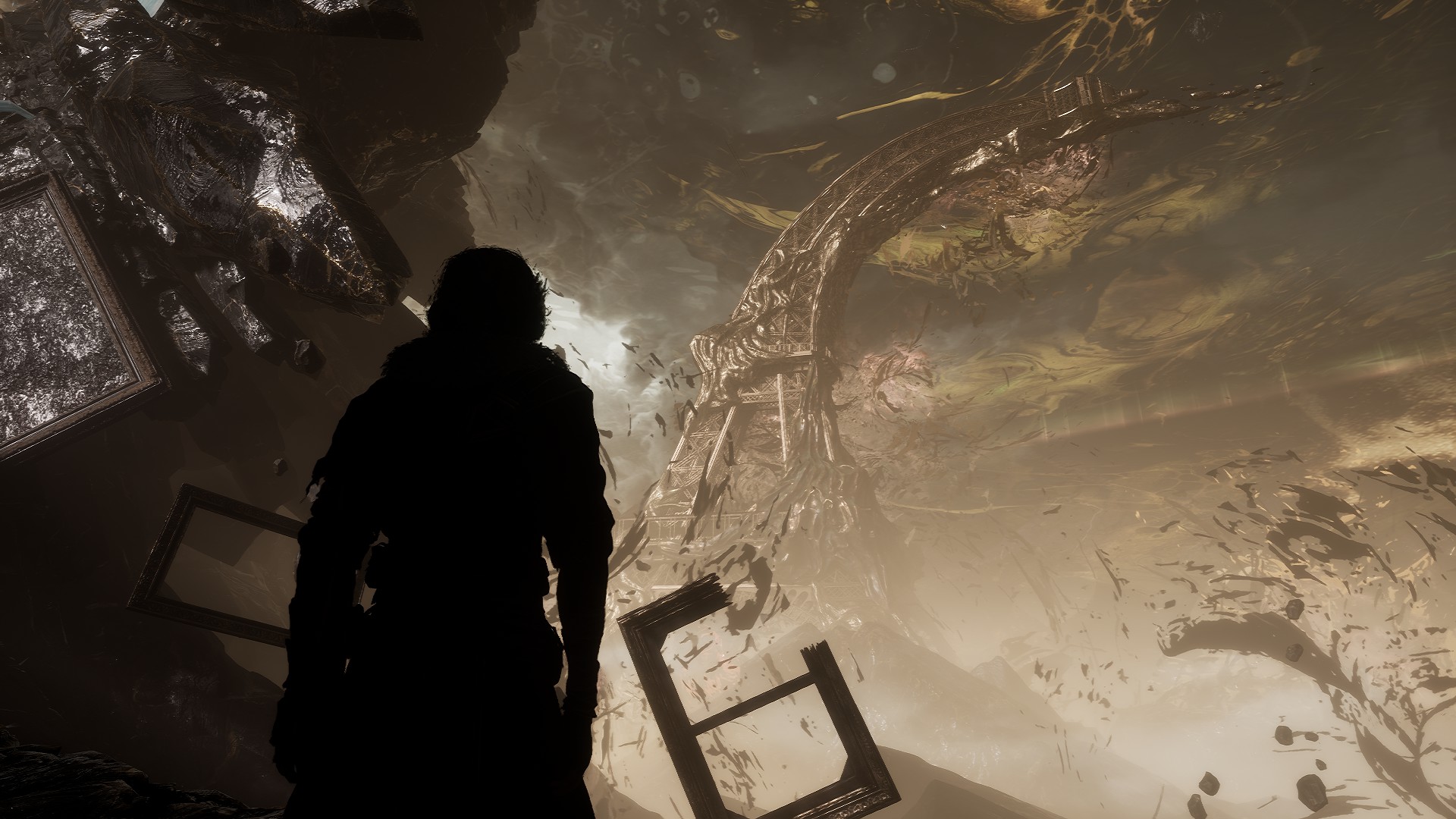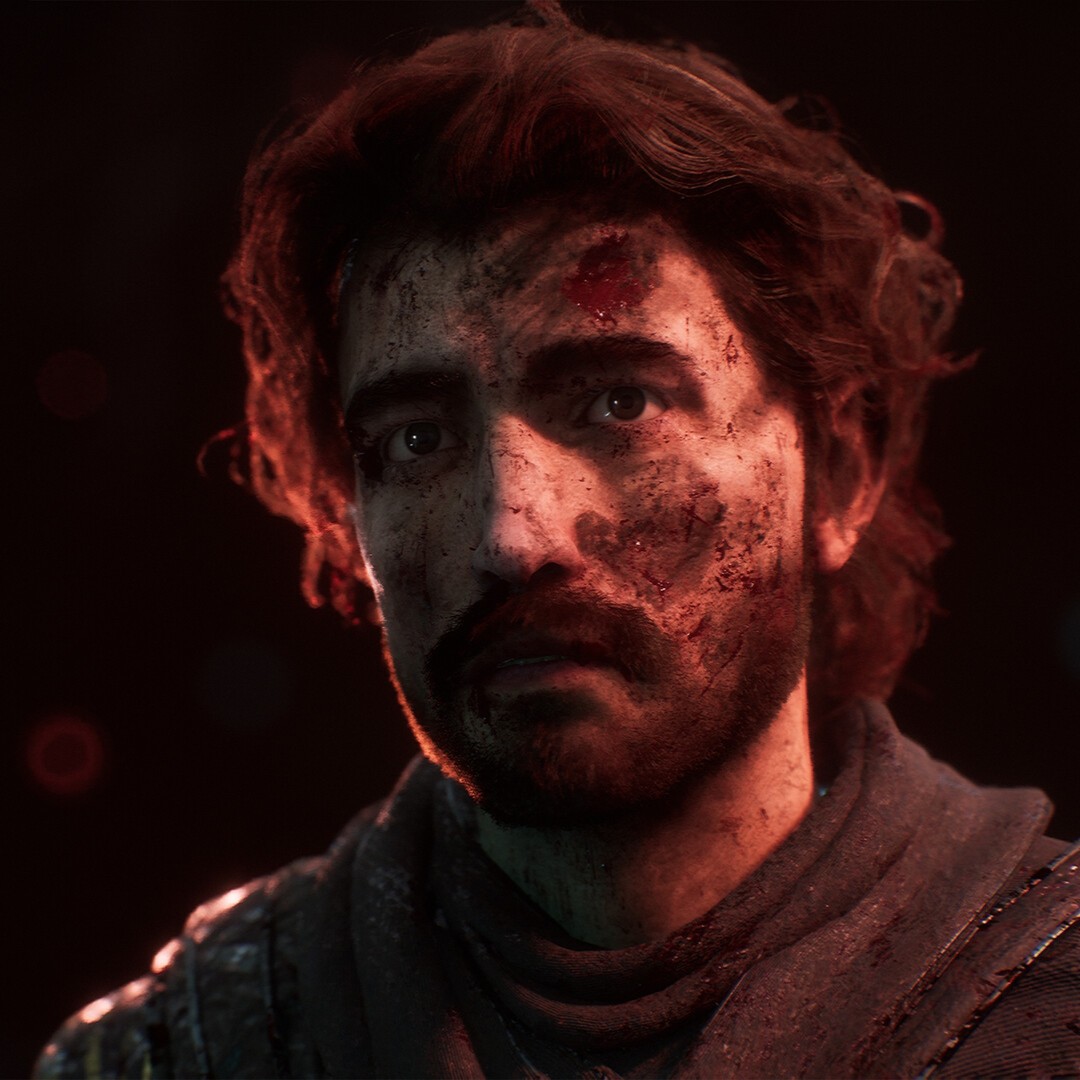You might’ve figured this out on your own if you clicked that headline, but just to repeat it here—this article will contain spoilers for the ending of Clair Obscur: Expedition 33. All of it. You have been warned.
I finished Clair Obscur: Expedition 33 last month, and it’s still stuck with me, like a bit of food in my molar that’s taken time to chew. In a week that turned into a blur, I ravenously devoured Sandfall’s RPG for one reason—I was ferociously hungry to get to the end of it.
Unlike some, I wasn’t entirely taken by its opening. I thought it was good, mind, but it takes me time to fully settle into the shoes of a new story. Being fond of analysing videogame stories means I approach the start of any tale with a critical mindset. Not critical in the negative sense, mind, but I like to spot the mechanics behind what I’m seeing. I’m always looking for the guy behind the curtain pulling all the levers.
As such, gut-punch introductions in games like Clair Obscur: Expedition 33 and The Last of Us don’t hook me. Instead, Sandfall’s JRPG dragged me deeper in the more secrets I uncovered about its world.
The magical post-apocalypse being inhabited by friendly dork constructs; Gustave’s death giving way to a nigh-identical stand-in, caught in mysterious parental drama; the reveal that the world is a painted puppet show for a family with severe grief issues; and that Maelle, poor Maelle, had lived two entire childhoods, each struggling to be more dickensian and tragic than the other.
Like any good book that’s ever gripped me, I couldn’t stop until I reached the end. I desperately needed to see how it wrapped up—and that desperation was met with Sandfall politely taking me out back and breaking my kneecaps. The messed up thing is, writing this, I’m currently crawling back inside to thank the studio for doing so.
Doomed from the start
Expedition 33 has two endings that have cleanly split its fanbase in twain. Rather than simply opting for a ‘good’ or ‘bad’ ending, the game elects instead to have you pick your poison. Catching you mercilessly between a rock and a hard place.

Maelle was a Paintress, a living goddess of the real world, but she spent 16 entire years living as a citizen of a ‘fake’ Lumiere inside her late brother’s canvas. She is faced with an impossible choice—she can either leave the canvas, and allow the scrap of her brother Verso’s soul to rest, or she can vanish into escapism in order to save what remains of her family.
A family you spend a good 20-30 hours playing as, by the way. Growing attached to them with all the universal RPG trappings: Increasing their approval ratings, gearing them out, doing their side-quests, resolving their own personal traumas and, in the case of Gustave, grieving their losses.
Saving those people dooms Maelle. Just like her mother, she can’t bear leaving Verso’s painting, a place where she can have a full life unmarked by the tragedy of the real world. This was the first ending I picked, and it’s genuinely excellent at twisting that knife.
The sheer contempt with which a revived Verso stares at Maelle, as much a jailor as a saviour—the slightly nervous smiles on the rest of Lumiere, who know they live and die by the wishes of two traumatised 16-year olds in a trenchcoat. The piano-sting jumpscare that sees her peeling into paint, unhealthy and in utter denial. You bring back Gustave, you reunite Sciel with her husband, and you save Lumiere—all at the cost of a teenager’s sanity and wellbeing.
Yet Verso’s ending, where you push Maelle out of the Canvas, is just as equally messed up. It’s presented with more colour, life, and closure. It is what’s best for the Dessendre family. Yet it’s just as melancholy as its sibling, because throughout the entirety of the game, we’re told that these painting people are still very much human, and yet their entire existence is doomed from the outset. Lune, who worked her entire life to research ways to save the people of Lumiere, is only allowed a quick look of disgust before she’s wiped out of the narrative entirely.
They’re doomed to an existence as the world’s most ethically inexcusable Tamagochi.”
It’s a little Frankenstein, come to think of it. In Shelley’s original novel, Victor Frankenstein is egotistical enough to believe he can create life—and is wholly unprepared for the responsibility that entails, as the abandoned and abused creature goes on a strangle tour of his loved ones. The monster cannot live a normal life, and it becomes an avatar of vengeance that ensures Victor can’t, either.
In a way, Lumiere’s the same, except the monster is rendered completely impotent. The implications are cosmic horror in scale. No matter how fully fleshed-out Sciel, Lune, or Gustave were—no matter how complex and meaningful their inner lives could be—they’re rendered basically incapable of exacting any sort of vengeance or escaping any sort of dependency on the Dessendre family. They’re doomed to an existence as the world’s most ethically inexcusable Tamagochi.
The choice is presented as either moving on from, or dwelling in, grief. But the real, deeper, thornier question is: Do you allow the Dessendres, living gods who doomed an entire world to suffering, to move on? Or do you condemn them for failing the canvas so much that you’d make the youngest, most innocent among them suffer?
Maybe Maelle’s parents have it coming for dragging an entire universe of sapient homonculi into an argument rather than just, I dunno, getting a family therapist or something. But you throw the baby out with the bathwater if you do that—punish god, and Maelle dies a slow death.
Everything fades
We’ve established that these endings are, for lack of a better word, severely fucked. I was left feeling weird and hollow and emotionally exhausted in the face of them. But the more I dwell on it, the gladder I am that something like this exists.

JRPGs are no stranger to sorrowful endings—just ask anyone who has played Final Fantasy 10, which carries some of the same tropes for reasons I shan’t spoil here—but they at least tend to offer some form of hope. The world is usually saved, and while characters die, the ones that remain get to move on. The only version of that this game offers is one where the people who get to move on are, perhaps, the least deserving of that kind of peace (except for Maelle).
In a sense, from the first second of Clair Obscur: Expedition 33’s runtime, everyone in its world is already lost. The moment the real Verso died, the moment his mother went into his canvas, the moment his father went in after him to try and burn it all down—the happy ending is already out of sight.
And you know what? That’s more interesting and memorable than any wish-fulfillment about a happy ending I could’ve gotten. Sure, I think Maelle’s parents deserve to get locked up for child endangerment, and I want Gustave to get his happily-ever-after instead of being Aerith’d. But would I still be thinking about it almost an entire month later if I’d gotten what I wanted? No, I don’t think I would.
Would I still be thinking about it almost an entire month later if I’d gotten what I wanted? No, I don’t think I would.”
Stories are, increasingly, bending at the joints to the whim of fandom and wish-fulfillment. There’s nothing wrong with a happy ending, but playing some games and watching some shows, I can’t help but get the sense these massive, corporate ventures might just care a touch more about being digestible and resolved than compelling and complicated.
Maybe my own desire to see Gustave miraculously returned to life, painted Lumiere saved, and Maelle’s family able to move on from their grief all in one swoop was—well, a part of that. I’m playing this videogame, and if I max out everyone’s friendship meters and do all the sidequests, the game should end how I want it to, shouldn’t it? In retrospect it feels a little childish.
Anyway, call it cope—I’m glad Clair Obscur: Expedition 33 kicked my ass, and I hope Sandfall doesn’t patch up the open wound of its ending with DLC in the future. Sometimes nobody gets what they want, and that’s the way it is.

Expedition 33 tips: Conquer the continent
Expedition 33 lost Gestrals: Runaway kids
Expedition 33 mime locations: Beat the buskers
Expedition 33 old key: What it opens
Expedition 33 weird pictos: Where to use them







